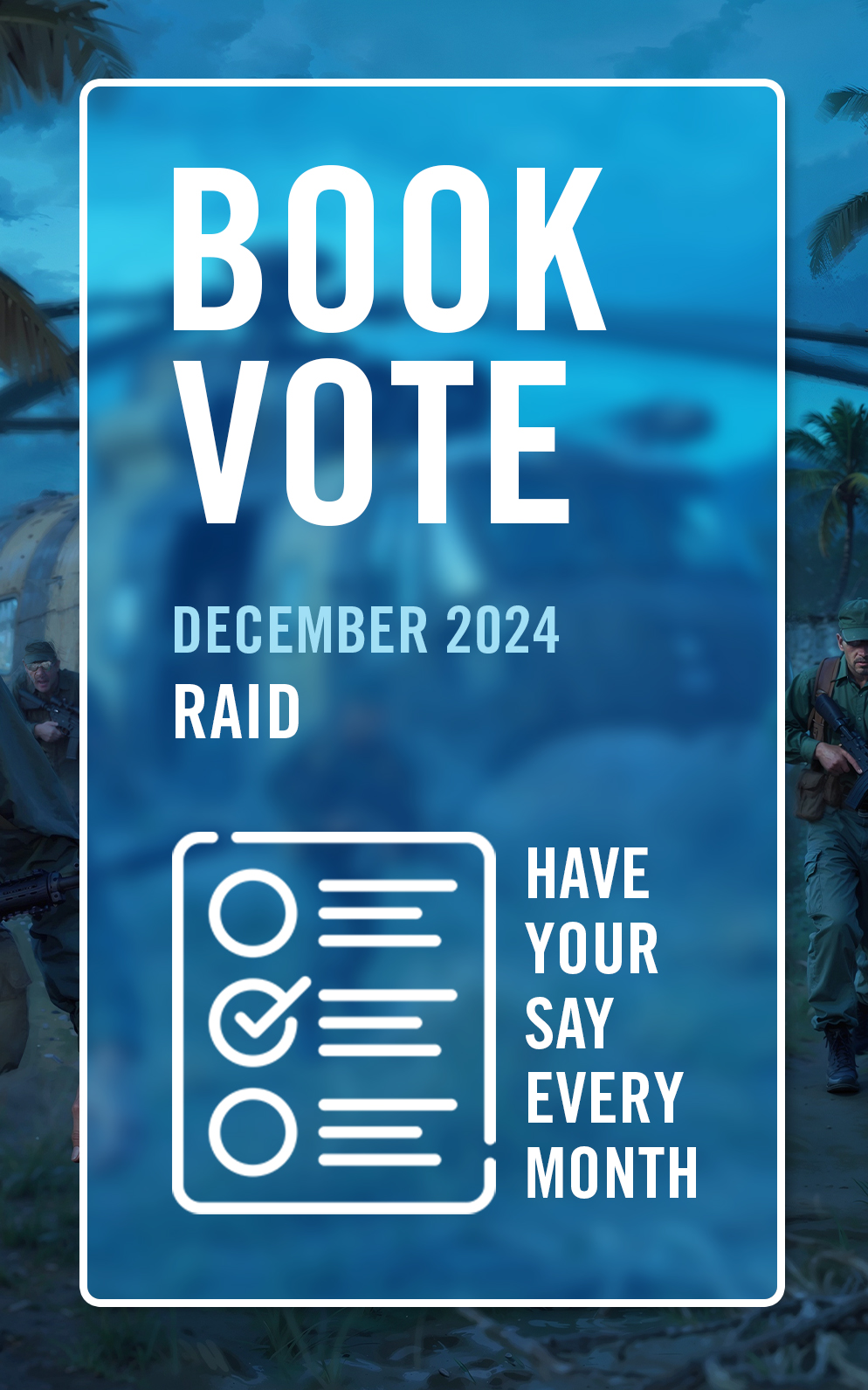
This month's book vote sees five Raid titles battling for your support. Read the full descriptions and have your say by visiting the Book Vote page. Plus, check out the results of last month's Duel (Military) vote.
The First Submarine Raids: Underwater warfare in the American Revolutionary and Civil Wars
Brandenburgers in Barbarossa 1941: Behind enemy lines in the invasion of the USSR
Patton’s Prison Break 1945: Task Force Baum’s tank raid on Hammelburg POW camp
Operation Opera 1981: Israel hits Saddam Hussein’s nuclear reactor
Pebble Island 1982: The SAS’s airfield raid in the Falklands
The First Submarine Raids: Underwater warfare in the American Revolutionary and Civil Wars
New York Harbor in the American Revolutionary War saw the debut of a remarkable military craft, the hand-cranked, one-man submersible Turtle, intended to discreetly place a mine against the hull of British warships. However, it was nearly a century later that the first warship would be sunk by a submarine, the USS Housatonic by CSS Hunley, one of several submarines to be built by the Confederates. This book would trace the development of early American submersibles and their use.
Brandenburgers in Barbarossa 1941: Behind enemy lines in the invasion of the USSR
Having made their unofficial debut in the invasion of Poland, and become a formal part of the Wehrmacht in 1940, the unconventional Brandenburger special forces were given a significant role in the invasion of the USSR, with major operations mounted by several units in widespread locations. This would examine the actions in Barbarossa of the Germans’ specialists in operating behind enemy lines – disrupting, sabotaging, and seizing bridges and communications.
Patton’s Prison Break 1945: Task Force Baum’s tank raid on Hammelburg POW camp
In March 1945, with Third Army now advancing in Bavaria, General Patton ordered a task force to be assembled to push 50 miles into German-held territory to liberate a POW camp, which held Allied officers and men in miserable conditions, and which also happened to house his son-in-law Colonel John K. Waters. While the commander of the combat command assigned the raid, Creighton Abrams, wanted to use his entire force, Patton insisted only a small task force be sent. Task Force Baum’s 300 men and 50 tanks, halftracks and jeeps fought their way to the camp, taking huge losses, and on their return the remnants were ambushed and most taken prisoner.
Operation Opera 1981: Israel hits Saddam Hussein’s nuclear reactor
One of the most audacious air raids of modern times, Israel struck Iraq’s nuclear reactor site at Osirak in June 1981 with a flight of F-16s escorted by F-15s. Unable to refuel, the flight approached from the west, flying through Jordanian and Saudi airspace under false pretences, and exploiting a blind spot in Iraq’s air defence system to approach Osirak unseen. The effectiveness of the attack remains debated, but the strike itself was a remarkable achievement, with complete success and no losses.
Pebble Island 1982: The SAS’s airfield raid in the Falklands
In a raid that harked back to the unit’s origins in the Western Desert, in May 1982 the SAS raided the Argentinian forward airfield on Pebble Island. Following reconnaissance by canoe, 45 members of D Squadron were inserted by helicopter a few miles from the airfield, then to advance to the target and destroy ground-attack aircraft there with explosives and small-arms fire, with HMS Glamorgan joining the attack by shelling Argentinian troops, fuel and ammunition dumps. With only one man injured, and heavy destruction and damage caused, the raid was one of the SAS’ most complete successes.
Last month, we asked what you would like to see published in our Duel (Military) series. Thank you to everyone who voted and provided feedback. Here are the results:
M4A3E8 Medium Tank vs T-34-85: Korea 1950 – 33%
Chieftain vs T-62: Iran–Iraq War 1980–88 –39%
M24 Chaffee vs PT-76: Indo-Pakistani War 1971 – 13%
PT-76 vs M72 LAW: Vietnam 1968–69 – 6%
M42 Duster vs RPG: Vietnam 1966–72 – 8%

Comments
You must be logged in to comment on this post. Click here to log in.
Submit your comment